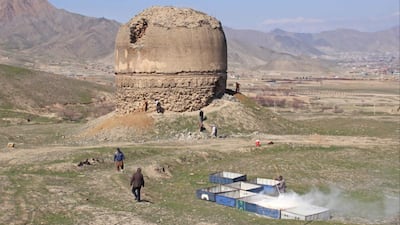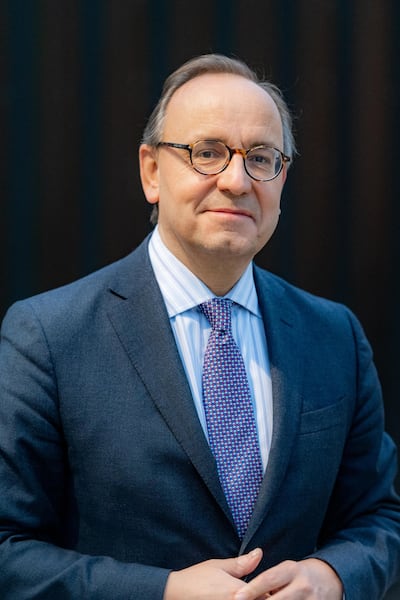The Aliph Foundation has doubled the amount of emergency funding allocated for its coronavirus relief call.
The Swiss-based organisation, which helps safeguard world heritage sites that are in conflict or post-conflict areas, will give more than $2 million (Dh7.3 million), up from the $1m it envisaged giving to cultural heritage sites that have been affected by the coronavirus pandemic. These include more than 100 organisations in 60 countries, including the National Museum of Mali, the Uganda Museum in Kampala, Corporacion Cultural Museo del Vidrio of Bogota and the Directorate of Heritage and Archaeology of Mosul.
“We knew that there was a need, but we didn't know that it would be this much,” says Sandra Bialystok, a spokeswoman for Aliph. “We were also gratified that we were able to reach so many local and regional cultural heritage operators.”
Heritage sites have been particularly affected by the pandemic. They have met many of the same challenges as major museums and cultural organisations worldwide – such as closures, the postponement of rehabilitation or building work, and most crucially the loss of revenue and jobs – but from a standpoint of having smaller budgets and operating in more complicated conditions.
A substantial proportion of Aliph’s emergency funding will go to local organisations, around 90 per cent of which have not been supported by Aliph before. The young foundation credits being able to leverage its open call among its partners for having had a particularly wide reach, as well as the fact that it, for first time, held an information meeting for the grants in Arabic. Working with smaller projects has also diversified the type of work Aliph is supporting, with funding going to intangible heritage projects as well as museums and restoration sites.
Executive director Valery Freland says that the move towards local funding is one of the goals of the foundation.
"Our objective is to be able to work more and more with local organisations, and closer to communities," Freland says. "Of course, it's challenging because working in conflict areas there are not so many specialised operators able to accomplish huge rehabilitation projects, so we need both."
One of the new recipients of the emergency funding is Palestinian craft organisation Sunbula, which supports the preservation of traditional craft techniques. Sunbala’s store has been closed since March, causing a steep loss of revenue for the 2,000 workers in its affiliated artisan groups.
Aliph will also be distributing funds via partner organisations, such as Unesco, the International Council of Museums, the World Monuments Fund, and the Aga Khan Trust for Culture.
A slim organisation of eight people, such partnerships are key to Aliph’s modus operandi. Aliph was founded in 2016 with seed money from seven countries, including $30m from France, $20m from Saudi Arabia, and $15m from the UAE.
It supports a number of large-scale rehabilitation projects, such as the restoration of the Beit Al Tutunji in the old city of Mosul, a grand Ottoman-era house that was used as an artillery encampment by ISIS and partially destroyed by coalition air strikes, and the conservation of a Buddhist-era stupa in Shewaki, Afghanistan. (Both these projects were put on hold following the coronavirus outbreak and have since resumed.)
But the foundation also aims to be a coordinator, streamlining projects in a sector with many stakeholders. It has now launched, for example, a website with training resources for those in the cultural heritage field, such as practical modules in illegal trafficking and preventive conservation, and courses designed to raise general knowledge of the areas it is helping to safeguard, such as African rock art or the history of Mesopotamia in 3rd century BCE.
“This was the very first time that someone does something like this,” says Freland, “which is just trying to put everything and everyone in the same page, on the same website."
Another part of the $2m funding will go towards capacity-building initiatives, accomplished in partnership with the International Centre for the Study of the Preservation and Restoration of Cultural Property and the Prince Claus Fund’s Cultural Emergency Response programme. These will support distance-learning initiatives for what is called cultural heritage “first-aid" – immediate responses to destruction that occurs mid-conflict.
“What we are creating with Aliph is something quite new: a small international organisation, focusing on concrete initiatives, concrete projects on the ground,” says Freland. “That’s what we tried to show with our action plan for Covid-19: a new way to do multilateralism.”



